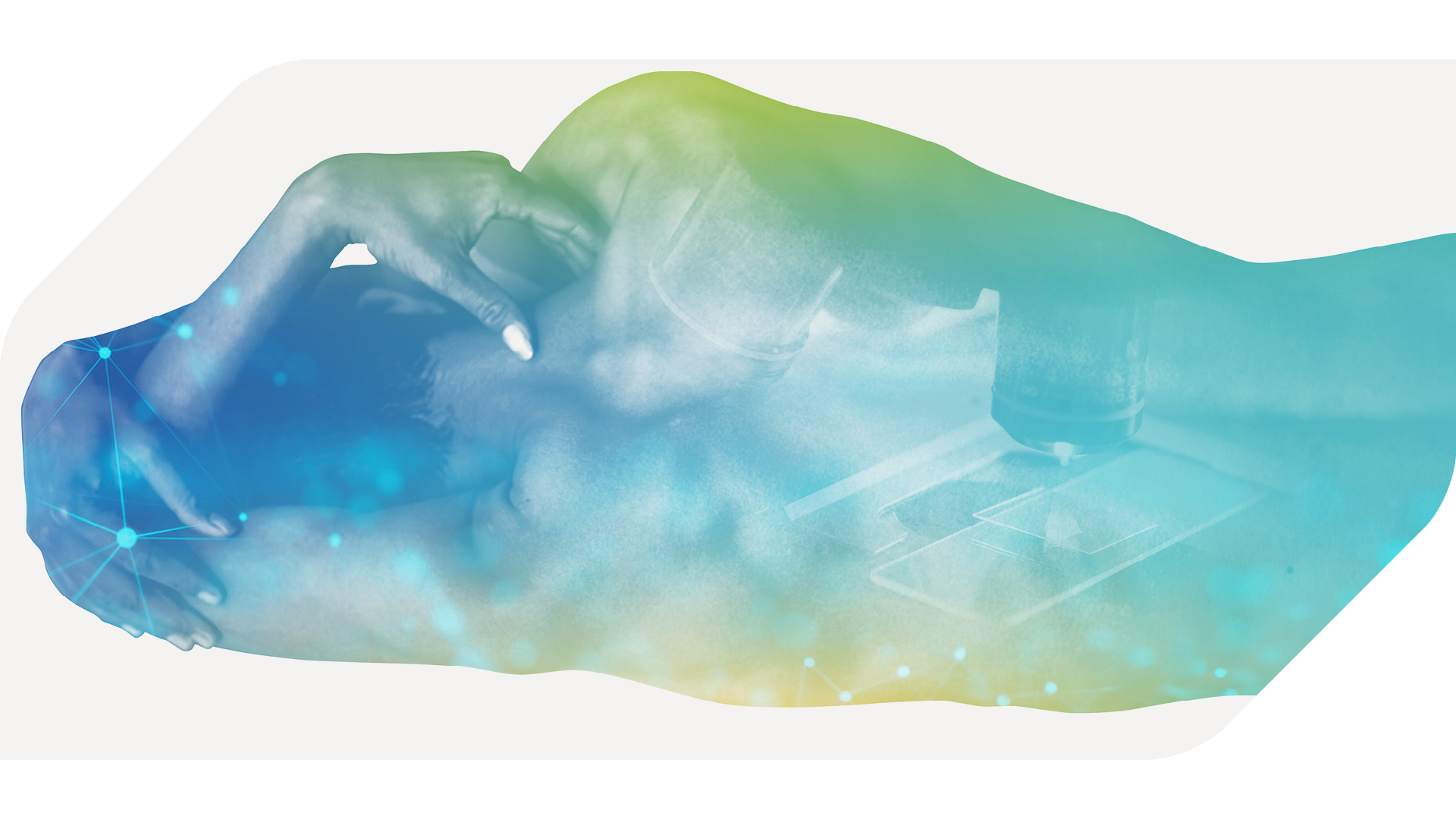Our Mission
We want to help people living with debilitating conditions by developing non-addictive pain medications to reduce reliance on opioids.
Established in 2017, we are a biopharmaceutical company focused on developing innovative prescription medicines through a regulatory pathway, with a particular emphasis on targeting chronic pain. Many patients face debilitating conditions where existing treatments fail, lead to severe side effects, or result in opioid dependence. The market for effective pain treatments is valued at nearly US$60bn and is expected to rise to US$75bn by 2027. Our aim is to develop non-addictive medicines to address this significant unmet need.
Our approach targets the Endocannabinoid System (ECS), a critical biological system involved in regulating pain, inflammation, and immune response. By leveraging our library of proprietary pharmaceutical compounds, we aim to develop first-in-class treatments or medicines with market exclusivity, transforming pain management and improving patient outcomes.

What Makes Us Different?
Quality
Our Board and senior management team have extensive experience and diverse expertise across pharmaceutical operations, R&D, intellectual property, law, finance, public policy, and regulation. Our Scientific Advisory Board (SAB), a panel of world-leading experts in all aspects of neuropathic pain — from basic research through clinical development to regulatory approval — provides invaluable advice and guidance to help shape our strategy and keep it proactive and forward-looking.
Efficiency
Since our foundation in 2017, we have combined innovation with technical expertise to develop an efficient drug development strategy. This approach lowers development risk and costs while shortening the timeframe to commercialisation, all without compromising the crucial safety and efficacy testing required for regulatory approval.
Pathway
We are developing a diverse pipeline of prescription medicines targeting the Endocannabinoid System (ECS) for chronic neuropathic pain conditions and cancer, with active programmes already demonstrating the potential of our proprietary compound library. Octavian’s drug candidates are being developed as regulator-approved medicines that can be prescribed by physicians and reimbursed by insurers.
Environmental, Social, and Governance
We are deeply committed to our long term aim of ensuring sustainable financial returns for stakeholders and shareholders, and integrating responsible investment and operational decisions with ESG considerations.
Work Environment and General Policy
-
At Octavian, we are an equal opportunity employer committed to fostering a diverse and inclusive environment. We uphold responsible governance principles across our company and in collaboration with our academic and business partners.
We ensure that all individuals receive equal treatment, regardless of gender, gender identity, age, disability, religion, belief, political views, sexual orientation, marital status, nationality, race, or physical or mental health. These principles guide all aspects of our business, from recruitment and workplace policies to our broader partnerships and operations.
-
At Octavian, we believe that diversity is essential to fostering innovation and driving the development of groundbreaking therapeutic treatments. We are committed to creating an inclusive environment where the rights, perspectives, and differences of everyone—whether directly or indirectly involved with the company—are recognised, valued, and respected.
-
At Octavian, we are dedicated to fostering a positive, inclusive, and welcoming environment for our employees, job applicants, clients, customers, and affiliates. Consideration for others is a core principle that we uphold both inside and outside the workplace, creating a safe and empowering environment for all. We also ensure that our associates and collaborators share this commitment by promoting and enabling similar policies across our partnerships.
Research Animal Care and Welfare
Our purpose is to research, develop and manufacture innovative pharmaceutical products. Due to scientific and regulatory reasons, animal studies remain a small but crucial part of our work to deliver safe and efficacious therapies.
-
At Octavian, we are committed to the highest ethical standards in research and development. While we actively engage with partners to develop and validate experimental methods that provide alternatives to animal testing, current regulatory requirements and the absence of suitable alternatives mean that some animal studies remain necessary.
We work closely with legislators, regulators, and scientific institutions to minimise the use of animals in research and to support efforts aimed at eliminating the need for such studies in the future. Octavian ensures that all collaborators adhere strictly to international and local legislation, including The Animal Welfare Act 2006, and comply with regulatory guidelines. Additionally, we go beyond regulatory requirements by enforcing a voluntary ban on testing with great apes, even in jurisdictions where such research is permitted.
We recognise our ethical responsibility to treat all animals with respect, striving to minimise their pain and distress, and to avoid it entirely whenever possible. We are committed to the internationally recognised "3Rs" principles in animal research:
Replacement – Using non-animal alternatives whenever feasible.
Reduction – Minimising the number of experiments and animals required.
Refinement – Enhancing procedures to minimise pain and distress.
All animals used in our studies are specifically bred for research, and all breeding, housing, and research facilities are AAALAC-accredited or in the process of first accreditation. These facilities undergo regular inspections to ensure compliance with the highest standards of animal welfare. Furthermore, all animal care staff are highly trained, continuously educated, and assessed, with qualified veterinarians available at all times.
At Octavian, we do not conduct or support testing on cosmetics, food, or dietary supplements. Our focus remains on developing innovative, regulator-approved medicines to address significant unmet medical needs.
The Company ensures that any collaborator is strictly following international and local legislation and regulatory guidelines and does not perform procedures which are deemed unethical or illegal under The Animal Welfare Act 2006. We go above and beyond in our compliance with regulatory requirements, as OCT also enforces a voluntary ban on the testing on great apes (i.e., chimpanzees) in research, even in countries where it is legal to do so.
At OCT, we recognise the ethical responsibility to treat all animals respectfully, while striving to minimise their pain or distress, and to avoid it completely when possible. To this end, OCT is committed to following the high standards of internationally-recognised practices on the humane treatment of animals. We uphold and embrace the “3Rs” of animal research, namely:
The replacement of animals when possible and/or acceptable;
The reduction of the numbers of experiments and of animals required by each experiment; and,
The minimisation of pain and distress, by means of refinement of animal studies procedures
All animals used in OCT studies are specifically bred for research. In addition, all facilities where animals are bred, housed, or undergo procedures are accredited by the Association for Assessment and Accreditation of Laboratory Animal Care (i.e., AAALAC-accredited) or are in the process of first accreditation and undergo regular visits by AAALAC. This ensures that all animal staff are competent, trained, continuously educated and assessed. OCT ensures that qualified veterinarians are available at all times for advice and help in the care of animals.
At OCT we do not work with or test cosmetics, food, or drink supplements.
Environment, Health and Safety (EHS)
At Octavian, we prioritise the wellbeing and health and safety of our employees and affiliates. We are continually seeking new and improved ways to enhance the positive impact of our work on the environment while striving to serve the needs of the global community responsibly and sustainably.
-
At Octavian, we are committed to conserving natural resources and striving for environmental sustainability. We ensure that our facilities, as well as those of our academic and contracted collaborators, are operated efficiently to optimise energy usage, minimise waste production, and protect both nature and people.
As part of our research and development, we use hazardous or potentially hazardous chemical and biological materials, which are essential for investigating disease mechanisms and discovering new, life-changing medicines. We are dedicated to ensuring that these materials are acquired, stored, transferred, modified, handled, and disposed of responsibly, minimising any potential risks to human health and the environment. Their use is strictly governed by an understanding of their hazards and the implementation of appropriate risk management controls.
Octavian adheres to all local and national regulations governing environmental, health, and safety (EHS) matters. We ensure that our employees receive comprehensive training to identify and mitigate risks associated with hazardous substances and other core business activities.
In collaboration with our partners, we promote safe working practices by implementing rigorous risk assessments, maintaining clear local procedures, and providing continuous training. We also require that all accidents, incidents, near-misses, and safety observations are reported, investigated, and addressed promptly to uphold the highest safety standards.
OCT uses hazardous, or potentially hazardous, chemical and biological materials at every stage of its research and development. These materials are necessary for researching and identifying the causes and the cures to diseases and in the discovery of new, life-changing medicines.
The Company is, therefore, committed to ensuring that hazardous chemicals and biological materials are acquired, stored, transferred, modified, handled, and disposed of in a way that minimises any potential adverse effects to human health and to the environment. Their use must be based on both an understanding of the hazards they present and on the corresponding controls aimed at managing the risk of exposure.
OCT complies with the local and national guidelines in all matters of EHS. The Company ensures its employees are knowledgeable and trained to identify and prevent risks and hazards associated with the use of substances hazardous to health and with any other aspect of its core business activities.
In addition, OCT cooperates with its partners to make sure safe systems of work, local procedures, risk assessment, and relevant and continuous training are part of their standard operating procedures and that they take all reasonable steps to ensure all accidents, incidents, near-misses, and safety observations are reported and investigated in a timely fashion and that corrective measures are swiftly implemented.





